Better Call Paul | How Should Climbing Research Be Standardized?
In this episode, the fourth of five special Better Call Paul episodes, Kris and Paul discuss a position statement paper from the International Rock Climbing Research Association.
Published in 2016, the aim of the position statement is to bring greater uniformity and standardization to how data is collected and research findings are reported when it comes to rock climbing. Kris and Paul delve into each section of the paper and talk about the pros and cons of what the IRCRA proposes.
Comparative grading scales, statistical analyses, climber descriptors and ability grouping: International Rock Climbing Research Association Position Statement
By: Nick Draper, David Giles, Volker Schöffl, Franz Konstantin Fuss, Phillip B. Watts, Peter Wolf, Jiří Baláš, Vanesa España Romero, Gina Blunt Gonzalez, Simon Fryer, Maurizio Fanchini, Laurent Vigouroux, Ludovic Seifert, Lars Donath, Manuel Spoerri, Kelios Bonetti, Kevin C. Phillips, Urs Stöcker, Félix Bourassa-Moreau, Inmaculada Garrido, Scott Drum, Stuart Beekmeyer, Jean-Luc Ziltener, Nicola Taylor, Ina Beeretz, Franziska Mally, Arif Mithat Amca, Caroline Linhat, and Edgardo Ac Abreu; published in Sports Technology, 2016.
*Additional studies/resources mentioned in this episode:
Reporting climbing grades and grouping categories for rock climbing By: Nick Draper, Jorge Couceiro, Simon Fryer, Tabitha Dickson, David Winter, Greg Ellis, Michael Hamlin, Jerry Shearman, and Chris North; published in Isokinetics and Exercise Science, January 2011.
New episodes of Better Call Paul drop on Wednesdays. Make sure you’re subscribed, leave us a review, and share! And please tell all of your friends who are confused and overwhelmed by the amount of jumbled and conflicting training info out there, that you have the perfect podcast for them.
Got a question? Comments? Want to suggest a paper to be discussed? Get in touch and let us know!
Better Call Paul | Breaking Beta is brought to you by Power Company Climbing and Crux Conditioning, and is a proud member of the Plug Tone Audio Collective. Find full episode transcripts, citations, and more at our website.
FULL EPISODE TRANSCRIPT:
Breaking Bad Audio Clip 00:05
What positive? Positive what?
Pressure. I've turned the ventilation up to keep the outside out. There's been a contamination.
What? Whoa, whoa, whoa. Hey. Hold up.
Something got into the lab.
So what do we do? I mean, do we? Wait, wait, I mean, shouldn't we be wearing masks?
No, no, it's not that kind of contaminant.
So exactly what kind of contaminant are we dealing with here?
Flying.
What do you mean, fly like, what do you mean?
A fly. A house fly.
Like one fly, singular? What did it do?
It got into the lab and I'm trying to get it out, okay? Understand?
So you're chasing around a fly and in your world, I'm the idiot.
This fly, any fly, cannot be in our lab. It's it's a problem. It's a contamination and that is in no way a misuse of the word, okay? So in terms of keeping our cook clean, and our product unadulterated, we need to take this very seriously. Now do you understand?
Kris Hampton 01:26
We can't have our data contaminated, Paul. It's of the utmost importance that our cook is clean and our product unadulterated.
Paul Corsaro 01:35
If you can't keep it clean, why even do it at all, right?
Kris Hampton 01:38
Exactly, exactly. And I play that clip, because that's sort of what we're talking about today is it's not necessarily a contamination, but it's that the research in climbing was kind of all over the place with the language they were using and the methods they were using and coming up with a way to keep that adulterated, to keep that cook clean is what this paper that we're looking at today is all about.
Paul Corsaro 02:10
And you know, people always complain about small sample sizes and how stuff's not meaningful, but if we can figure out a way to combine things, you know, maybe we can make those numbers a little bit, have a little bit more of an impact. So stoked to dig into what these folks have been working on.
Kris Hampton 02:26
Yeah, and this is a, this is a Better Call Paul episode, but we are looking at a paper. The paper that we're looking at is the title is "Comparative Grading Scales, Statistical Analyses, Climber Descriptors and Ability Grouping: International Rock Climbing Research Association Position Statement." So this is a group of researchers who all gathered together, who are all in the climbing world, and wanted to standardize, so to speak, how research is done on climbing. This was published in the journal Sports Technology in 2016. Authors are Nick Draper, David Giles, Volker Schöffl, many others, lots of names we've seen in other papers throughout the history of research for climbing. The purpose of this paper, I think we've already said it, but I'm going to read it directly, is, "The aim of this position statement is to bring greater uniformity to the descriptive and statistical methods used in reporting rock climbing research findings." I think it's a noble cause.
Paul Corsaro 03:40
Yeah, I think so too. I think it'll make things very useful. And I think we mentioned this in a couple of the papers we looked at in Season One where they actually used this, which, you know, as we'll go into, as we work into the paper, like there's a bunch of different ways to give a difficulty level or an ability level for rock climbing performance and it's really hard to make comparisons if you're not coming from the same ground. So I really agree with this call. I think it's a great thing to have, and it's great thing that's being worked on.
Kris Hampton 04:09
Yep, totally. I applaud them for it. And I think it remains to be seen, and we'll go over that today, did they actually reach the uniformity they intended to? So let's get this thing started.
Breaking Bad Audio Clip 04:24
You clearly don't know who you're talking to, so let me clue you in.
Paul Corsaro 04:28
I'm Paul Corsaro.
Kris Hampton 04:30
I'm Kris Hampton.
Breaking Bad Audio Clip 04:31
Lucky two guys, but just guys, okay?
Paul Corsaro 04:35
And you're listening to Breaking Beta,
Kris Hampton 04:37
Where we explore and explain the science of climbing
Breaking Bad Audio Clip 04:41
With our skills, you'll earn more than you ever would on your own.
Breaking Bad Audio Clip 04:46
We've got work to do. Are you ready?
Paul Corsaro 04:50
I am ready. How about you?
Kris Hampton 04:53
Man, it's the last of the Better Call Paul's and I don't really want them to end but I am excited to get rolling on Season Two, so yeah, let's, let's go. I want to start with the fact that in the previous episode, we lamented a little bit that there wasn't really a great place for collaboration and discussion between climbers..... climbers, coaches and researchers. I was surprised to read in this paper that the IRCRA was formed in 2011, number one.
Kris Hampton 05:26
That's way earlier than I thought. And in their words, it was to bring together climbers, coaches and researchers to share knowledge and promote collaboration. I'm glad that was the goal. I'm not sure they succeeded in that regard. Do you have a sense of when you first became aware of the IRCRA?
Paul Corsaro 05:26
Yep
Paul Corsaro 05:48
I mean, honestly, it was when we were reading some of those papers from this past season. It was like the grade scale jumped out at me and I hadn't yet I hadn't really heard of it before then, to be frank. How about you?
Kris Hampton 06:01
I had heard of it, only because I had seen some of the climbers who are active on social media, climbers, researchers, Eric Hörst, Volker Schöffl, Eva Lopez, Carrie Cooper, she's also a member. I've seen them post on social media that they're going to the IRCRA events. So I had heard of it, but it was definitely not back in 2011. It was probably more like 2018 that I first heard of it. And I think, at least in my mind, you know, Dave Giles, Eva Lopez, Volker, are probably some of the more, you know, public facing people. But I think maybe Eric Hörst and Taylor Reed from Beta Angel, are the two voices who do the most promotion for the IRCRA in the climbing and coaching community, at least in the US.
Paul Corsaro 06:59
Yeah, I agree with that. I think that's pretty on point.
Kris Hampton 07:04
Yeah, so I'm glad that was their goal. I'm not sure that goal has actually been reached,
Paul Corsaro 07:10
Yet. Maybe, you know, let's keep moving forward. Let's figure it out, right?
Kris Hampton 07:14
Yep. Why was this paper sorely needed in, in your opinion?
Paul Corsaro 07:18
Well, they kind of if you just even look at the first table in the paper, so going back to one of the main reasons they put out this position statement was that out of the 550 or so papers of the of climbing research that were out there at the time of publishing, which I mean, that number kind of surprised me. I didn't know there was that much out there.
Kris Hampton 07:38
Same.
Paul Corsaro 07:38
I was like, it'd be cool if there was a database of all that. That'd be good to pick and choose. But I mean, so apparently, there's a lot of research out there. And it just seemed like there wasn't a whole lot of uniformity, to reporting the ability levels of rock climbers, or even standardizing how a climber would report their ability level. I mean, we all know if we're climbing for a decent amount of time, you all know there's different grading systems. You've got the YDS, we've got, you know, the French system, UIAA, you know, the bouldering grades. So you know, it's tough to find that common ground, especially if you're going to combine studies or even just report a single study and have another researcher look at it and understand where you're coming from. So they wanted to put out a call to develop a standardized ability scale for rock climbers, so moving forward, people are on the same page.
Kris Hampton 08:35
Yeah, I think it's, it's not a secret that grades are fucked, you know.
Kris Hampton 08:40
I think no matter how objective you make it, there's always going to be the, you know, say say we even go to the IRCRA, there's may if people graded climbs outside with that standard, you'd have people arguing whether something was a 17 or an 18. We'd probably see 17+, 18-
Paul Corsaro 08:40
True
Kris Hampton 08:40
The V scale for boulders or the Eubank scale in Australia might be the most sensible in that they're kind of a linear or ratio scale. And they don't use plus or minus or A, B, C, D. But they both start in strange places. The Eubank scale starts at grade four, for some reason, and V0 is equivalent to 5.10 or 5.11, so it doesn't even go down to 5.1. So they don't really make sense to use, so they had to come up with their own scale, and it's just a linear ratio scale, which I think makes good sense. I'm glad, really glad, actually, that they don't include a plus or minus or ABCD in their grading scale. I think what happens is that that, that trying to like split up the grades, it's an attempt to make it more subjective, but I think or make it more objective, but I think all it does is it chops up what is actually a really fairly broad scale, and tries to further define it, which makes it more subjective. It's it's this strange, netherworld and I think we just need to accept that at the edges of each delineation, it's going to be blurry.
Kris Hampton 10:29
Exactly.
Paul Corsaro 10:30
So there's always going to be that kind of salami-ing things down.
Kris Hampton 10:33
Haha for sure. And, and it's just our nature, you know, we want it to be more accurate. But in turn, that makes it even less accurate for someone else. That's just the way it works. I think this is a smart and clean way to do it. It's just, you know, 1,2,3,4,5,6, all the way up. Open ended.
Paul Corsaro 10:56
There's a 33 now.
Paul Corsaro 10:57
32 in this paper, but now 15d has been climbed and V17, so I guess we've got our 33 out there.
Kris Hampton 10:57
Yeah
Kris Hampton 11:03
Yeah, totally. And I'll make sure this conversion table that they've made is in the blog post and the Instagram post for this episode, if anybody wants to see it. But I think it's smart and really clean and I think that's a big win for the beginning of this paper.
Paul Corsaro 11:20
Absolutely.
Kris Hampton 11:22
Any any other thoughts from you on the grades? From what I can see, this was kind of just a slam dunk?
Paul Corsaro 11:30
Yep. Yeah, look at it. Tables, easy to understand, and just it it's a, it's a logical way to go about it really. Start with the lowest one at one and then just go from there, right? There's a couple little, I mean, it pretty much pairs up, if you look at it, pretty close to the YDS, where like each just next decimal point, or next grade, whether it's you know, the decimal point number up to 5.9, and then you know, the letter grades is just the next number, so it's pretty simple. Everything else kind of falls in around there.
Kris Hampton 12:01
And grades are one thing. But you know, the next thing this paper tries to do is create ability groupings for climbers, so, you know, are you intermediate, advanced, elite, whatever? They just want a language that works well for these ability levels. And I think we sort of ran into this problem in Season One, where we had a paper that called them elite or advanced or something like that and what they were really talking about is climbers that climbed harder than 5.10 or something. And I think anytime you add these words, "intermediate", "advanced", "elite", you're, you're giving the reader some information that can be wildly subjective. We all have our own versions of what advanced means, or elite means, so this paper aim to sort of standardize this info.
Paul Corsaro 13:01
That's another thing I agree with too because from a research perspective, we've got to have maybe a little more concrete definitions of where people fall if we're going to describe a group of people. So I think in addition to just the standardized scale, I thought the ability grouping was a great idea as well.
Kris Hampton 13:19
Yeah no what they came up with was "lower grade", "intermediate", "advanced", "elite" and "higher elite". I don't know about you, I'm not a fan of these, these words. They they conjure something still, I think that's the problem, is that you know, they don't they already have a meaning to us and when grades are moved higher and higher by the next generation, do we end up needing a "higher higher elite" or "more bigger elite" or "most elitist" or I don't know. What what comes next?
Paul Corsaro 13:58
Haha. There's plenty of elitist climbers out there.
Kris Hampton 13:59
Hahaha. Factual. They, interestingly, they attach a level one to five to these, to these words, "lower grade", "intermediate", "advanced", "elite", "higher elite", so why not just stick with one to five?
Paul Corsaro 14:16
Yeah
Kris Hampton 14:17
Or, you know, colors? Could be blue to red? Who knows? I think it should be something that doesn't conjure a level in our heads already.
Paul Corsaro 14:29
Yeah, and those terms are going to be subjective. Like why not keep it objective and clinical, like a lot of research
Kris Hampton 14:36
Right
Paul Corsaro 14:36
Seems to be so. I didn't think about that, honestly until you said that. I was like, "Oh, yeah, those make sense", but I didn't really think about the terminology and yeah, I agree with you on that, now that you mention it.
Kris Hampton 14:46
Yeah, I think if we're trying to standardize, this is sort of going backwards. Like let's let's take these words that already conjure up something in our heads and use those, just to fuck with people.
Paul Corsaro 14:56
Yeah.
Kris Hampton 14:58
Because eventually you know, if we we look at it, 1979 5.11 was elite. In the year 2035, we might have, you know, 5.17. Who knows? So is that still "higher elite" or do we need another grade?
Paul Corsaro 15:16
Or would you think people would maybe just shuffle? Keep the same five categories and just break it down a little differently?
Kris Hampton 15:24
Yeah, I think it's, it's tricky and that's that, I think is the point. I think it should have just been an open ended system that can continue to grow.
Paul Corsaro 15:33
I agree with that.
Kris Hampton 15:35
They also decided to split this ability grouping into two tables, one for men, one for women. And for instance, for men, "elite" begins at 13c or V9 and for women, it begins at 12d, V7. And I understand why they do this. I think it's a more nuanced conversation. It's... historically, the way we've separated male and female, the male category has the upper hand in strength and power based sports. I mean, that I think is just historically factual. If we look at something like sprinting, we can see Flo Jo's 100 meter record, set in 1988, at 10.49 seconds, which is blazing fucking fast. There's no debate about that. But it doesn't even make it into the top 10 high school boys record books. So for power and strength sports, men have the upper hand, I think that's just a thing we have to recognize. But should it be measured on a different scale? I think that's the that's the question here.
Paul Corsaro 16:46
Yeah, I Yeah. I kind of had to think about this one for a little bit.
Kris Hampton 16:51
Yeah, it's tricky.
Paul Corsaro 16:52
It can go both ways. I think you do gotta because a lot of research is done separately. They mentioned in here, like world records and performance standards are kept separately. But yeah, I don't know about the differing, differing levels in regards to the table.
Kris Hampton 17:14
Yeah, I think it's interesting. They say, you know, there's already this precedent set, and that's why we're doing it. But I, I think in this day and age,
Paul Corsaro 17:22
That's not a great explanation answer
Kris Hampton 17:25
We have to look at precedents that were that are tainted by history. They're tainted by sexism. This is an opportunity to try something new and I'm a fan of trying new things. I'm not a fan of just doing something because that's the way it's always been done. I think it lacks critical thinking. But I get it. So you know, I still applaud them for trying to create a standard. I think they had an opportunity here that they missed.
Paul Corsaro 17:54
I would wonder if it was done today, whether that'd be a little different.
Kris Hampton 17:57
Same
Paul Corsaro 17:57
Since this was 2016, so not a long time ago, but you know, things have changed. Obviously, a lot more still needs to change.
Kris Hampton 18:04
Yeah.
Paul Corsaro 18:05
But I think yeah, I wonder if people would look at that in a different light this day.
Kris Hampton 18:10
Yeah. Same. I'd be curious to know their thoughts on that now.
Paul Corsaro 18:15
And I don't think there are any, like nefarious or malicious intent behind that at all when they did that.
Kris Hampton 18:20
Right. Sure, I think there's some room to grow in the ability groupings. Next thing they tried to come up with were climber characteristics, essentially the things that should be collected in all of this research. And I think this is a good list. It's a self identity, so "boulderer", "sport climber", et cetera. How do you identify as a climber? Disciplines and percentage of time devoted to each in the last three and twelve months, the percentage of time indoors versus outdoors, also three and twelve months, mean time spent climbing or training in a typical week, time in the sport: a number of years or months experience. Are they involved in competition? And the preference for style of ascent and terrain, so onsight, redpoint, vert, overhanging slab, etc, etc. Is there anything you thought was glaringly missing here?
Paul Corsaro 19:21
I thought maybe the self reporting grades could be a little more fleshed out. Some of the.......I dug into some of the citations and you know, I only read the I only read the abstract, so take whatever I say about it with a grain, a grain of salt, but a lot of the self reporting grades as valid...as a valid measure, a lot of the research done on that was done based on just onsight level. But if we're going to take self reported for redpoint I think there's a difference there that needs to be considered. But yeah, I liked when they talked about the self reported grade for um... that 3-3-3 Rule, so three successful ascents on three different routes within the previous three months. I think that would give us a better baseline of where someone's self reports, maybe. I don't know, or maybe you disagree with me.
Kris Hampton 20:12
Interesting. I have a big push back against this 3-3-3 Rule.
Paul Corsaro 20:16
Okay, cool.
Kris Hampton 20:19
So let me explain. First, we need to know the grade a climber climbs when we're doing research. This person is x level climber and that value has to be involved. That's how we can compare it to all of the other data to see if it corresponds to x, you know. We have to have that value. So we have to sa, "You are a 5.11 climber" or whatever. They decided on a 3-3-3 Rule, which is three successful ascents on three different routes of the grade in the previous three months. When I first heard of this rule, I was in Hueco Tanks. On that trip, I did my first V11. So I decided to see where would I fit in this scale. According to the 3-3-3 Rule, I would be a V6 climber, because I had, that's the that's the highest grade I had done three of in the last three months. Even though I had climbed V11. I had done a V10 in a single session. I had done two V9s, both in a single session. But the only thing I had done three of was V6.
Paul Corsaro 21:39
Yeah
Kris Hampton 21:40
So I think, I think for a lot of climbers, especially like weekend warriors, this 3-3-3 Rule is garbage.
Paul Corsaro 21:52
I guess I wasn't considering that. I was just thinking of someone who is, I guess, climbing a lot and but yeah,
Kris Hampton 21:59
It works really well for a full time climber, right.
Paul Corsaro 22:02
I guess like everything, there's nuance, right? But
Kris Hampton 22:05
Yeah, and I mean, we we, as a company argued over this number a lot when we were creating our assessments, like, "How do we determine what that grade is?". And everybody sort of has their own thing, their own way to determine this, and they had to pick a way. So I get the issue with it. I have a real problem with this 3-3-3 Rule.
Paul Corsaro 22:30
I think, you know, maybe using it going forward in research there should maybe be some exclusion criteria for using it where you've got people who fall into those situations. Maybe you go back to self reported in a way that makes sense or something like that. But
Kris Hampton 22:45
Yeah, I do agree with what you said initially, though, that the self reported needs some further thought and some further research. But I suspect that ends up being the more accurate way to do it. We, we do, in our assessments, collect a self reported grade that is based on a hypothetical. This is not the number we use when we're measuring our data. But we do collect it and I think it would be really interesting to take a look at that data in in terms of these hypotheticals. So what we get is for boulders, the question is currently "In your preferred style of climbing, what grade are you confident you can regularly send within two to three sessions?" and for sport climbers, it's "Currently in your preferred style of climbing, what grade are you confident you can regularly send within eight to ten attempts?". So most people know, like, "I think I'm capable of sending 13c in two to three sessions or eight to 10 attempts", whatever, or whatever the grade is. Most people know. They have a really good idea of where they stand. So I'm totally guessing here, but I think the self reported grade might end up being better in the long term.
Paul Corsaro 22:46
It could be interesting to see taking a big population of climbers and looking at both of those and just looking at the variance, like maybe have the same people do it, do the same survey and just see the difference in those two. Because yeah, there are those cases that would exist that you mentioned that where one or one of those numbers might be a bit skewed.
Kris Hampton 24:37
Yeah, I think, you know, we take the three month rule. I think that's where the sticking point is for me in the 3-3-3. Sounds really nice, you know, it's concise. But if you take a weekend warrior, somebody who let's say, you know, I come from Red River Gorge, our whole season would be three months. So if it rains a few of those weekends, that might be, you know, you might have 12 days for a whole season and is 12 days, really enough to sa you had to do three of these over those 12 days to say you're this level of climber? For me, I don't think so. And then depending on when you're measuring, if, if you're measuring in September, the previous
Paul Corsaro 25:30
It was 100 degrees
Kris Hampton 25:31
The previous three months was 100 degrees, you know, so could you have climbed three of anything? I don't like it.
Paul Corsaro 25:39
I think it's a great example, how it's really hard to boil down rock climbing as a single metric
Kris Hampton 25:44
It's so hard.
Kris Hampton 25:45
Yeah. And if you're, if you're doing this research on full time climbers, maybe this 3-3-3 works really well. But then are you really getting a useful number for the vast majority of climbers?
Paul Corsaro 25:45
Like we're not lifting a bar with this amount of weight and these are the standards and this is the record. It's just it's the beauty of our sport really.
Paul Corsaro 26:06
Yeah, and applying that to a population that doesn't climb climb year round, four days a week?
Kris Hampton 26:11
It's fucking tricky, man. I do...like I said
Paul Corsaro 26:14
I like the intention a lot, but
Kris Hampton 26:15
Exactly. I applaud them for picking something and going with it. It's really fucking hard to do.
Paul Corsaro 26:22
Haha. We've got a few seasons left.
Paul Corsaro 26:22
It seems, moving forward, we've seen more of this...the papers we've looked at after this position statement came out, it seems like most of the... if I recall correctly, most of the climbing grade reporting in the papers that have looked at that have been self reported for the most part. And haven't I haven't seen that 3-3-3 Rule mentioned in the papers we've read at least. But then again, we did what 10 papers and apparently there's 540 other ones out there that we haven't seen, so.
Paul Corsaro 26:52
Haha. Yeah.
Kris Hampton 26:55
There are a couple things in these characteristics that I think are missing, that they don't talk about at all that maybe should be collected. Number one, and this is what I don't think we collect...maybe we d and maybe we just word it differently. I think we need to understand the time spent recreating versus intentionally trying to improve. I think that's a big point that's missing here. Because lots of climbers just climbed recreationally for five years, and they never really cared whether they got better or not. But then when they started really training and being intentional, they rocketed through the grades. So I think that needs to be taken into account, as well as type of rock most climbed on I think could be a really important thing. And I know, we do collect that.
Paul Corsaro 27:49
I could maybe see that type of rock. That could also fall into that last point of the climber's preference for style of ascent, for terrain. I think maybe that just could be fleshed out a bit. Or maybe that was considered in greater detail than just in talking about in the paper. But I think that's what I would, that's where that would fit for me.
Kris Hampton 28:08
There's also a question of, especially in today's world, where we have a much larger group of climbers who are spending most of their time indoors. Are we allowing indoor grades and outdoor grades to both be reported? Are they being reported in the same way? I think this is a really interesting thing to take into or to question here. Are they and should we? I don't really know.
Paul Corsaro 28:40
That's a debate for a whole a whole nother podcast, maybe haha.
Kris Hampton 28:44
But this that could be a whole podcast series is debating whether those two things actually line up.
Paul Corsaro 28:50
I mean, because they are for sure different, just experientially, right?
Paul Corsaro 28:55
Like it's a different day. Even like, you know, very rarely are you going to have the 120 foot sport route in the gym that requires something wildly different than, you know, a lot of the just mostly power endurance routes you're going to climb at a gym, so that's going to be different. There's a little bit less of those coordinative aspects, in the comp style, outside for the most part. Yeah, they're, they're different.
Kris Hampton 28:55
Sure.
Kris Hampton 29:22
And I think is it is it more different than say, a Red River Gorge Madness Cave route versus a Yosemite mirror-polished slab? Is there a bigger difference between indoors and outdoors or between Red River Gorge and Yosemite? I don't know.
Paul Corsaro 29:40
Yeah. Haha.
Kris Hampton 29:42
Yeah. It's it's lots of interesting questions. I'm glad this big group is tackling these things,
Paul Corsaro 29:50
Right. Because yeah, how do you take that and try and make it objective? That's what they're trying to do. And that is a daunting problem, so
Kris Hampton 29:56
Yeah, huge. The next section they go into is future research. I was actually a little surprised in this, that they spend so much of this section really just discussing grades. They're not really discussing future research as much. And they, when they're talking grades, they make a few statements that I just fundamentally disagree with. I'm curious your thoughts. They, they make a statement: "Although perhaps made more objective over time through repeat ascents and confirmation, or often downgrading, in talking about grades." I think they just kind of threw up their own red flag here and waved it around without even noticing they were doing it. Because they say "Or often downgrading", but they don't mention upgrading at all.
Kris Hampton 30:57
As if when we initially make grades, we're only grading them too high. We're never grading them too low. If there's a human variable at play here, it's going to wreak havoc on the numbers, and it's going to go both directions, right?
Paul Corsaro 30:57
Yeah
Paul Corsaro 31:12
Very much so. Yeah.
Kris Hampton 31:15
But I think we do have this culture that doesn't allow upgrading, you know. We we frown upon it, like, you have to keep the sandbag, you have to keep the grade low and I think allowing that culture to come into play here in the numbers is a is a problem.
Paul Corsaro 31:36
It's taking some of the subjective, more fluid aspects and trying to force it into an objective famework.
Kris Hampton 31:47
Yeah, so I like the I like the idea of consensus becoming more objective over time. But I think because of our culture and our culture of "You can downgrade but you can't upgrade", or the culture of just, "I'm going to tick the box, take the number, regardless" and there just really aren't that many people giving their impartial idea or their impartial opinion of what the grade should be. I don't think consensus is actually more objective. I think it might be less objective.
Paul Corsaro 32:23
Yeah, I agree with that. For sure. Yeah, we've seen that, especially these days where people are taking personal grades now. Which people do what they want to do, but like I mean, that's not going to be a consensus objective. It's literally a personal grade. But that's gained, got some momentum. Again, as we move forward, it's, I don't see it being an objective way to go about it.
Kris Hampton 32:46
Do you think there that it would ever be possible to come up with an impartial grading committee?
Paul Corsaro 32:52
No, no way. Hahaha.
Kris Hampton 32:55
Haha
Paul Corsaro 32:55
Not a chance.
Kris Hampton 32:56
Robots. We need climber robots that climb things and give you an absolutely impartial objective grade.
Paul Corsaro 33:05
That is the answer for everything right there.
Kris Hampton 33:08
Hahaha. Concerning grades, they also make the statement: "It may be likely that the steps between grades are not of a ratio scale, but more likely ordinal and should perhaps therefore be treated as such, which has implications for further statistical analyses." And this is a thing I've heard since I started climbing, that the gaps between grades grow exponentially as the grades get higher. I, however, don't believe that's actually the case. I think we're injecting our own experience as limited human beings into this numbered system. And let's be clear, difficulty scales don't exist in a vacuum. Without humans creating the difficulty, you know, of a rock climb, it actually isn't a real thing. So we determine where the lines are drawn. But an ordinal, or exponential scale doesn't really explain why each subsequent generation can just fly right past the previous generation's high point with no problem. You know, they treat... kids nowadays treat 5.13 like we treated 5.11. You know, we're very quickly through that grade. And the next generation is going to treat 5.15 that way. So this suggests that there's something else at work, a psychological barrier, which they do acknowledge here. But then they turn around and discount it as if simply reading the difficulty scale and not choosing where to draw the lines around it, you know, but we are choosing to draw those lines.
Paul Corsaro 34:48
So I think yeah,
Kris Hampton 34:50
It's a tricky conversation, one I've been thinking about for a long time. If you, Paul, had to pick a single human being, just one, to suggest how the line should be drawn at the upper ends of climbing grades, who would you choose?
Paul Corsaro 35:08
Hahaha. So pick a single human being to suggest how to draw the line for the upper ends as in....?
Kris Hampton 35:17
Are they going to draw it linear? Are they going to draw it exponential, ordinal? Someone has to decide where all those lines go between 5.15, 5.1, whatever. Who, who draws those lines? Who do you choose?
Paul Corsaro 35:36
Dave Graham, just because I'm interested to see what comes of it.
Kris Hampton 35:40
Hahaha. I love it. Well, I'm going to choose Adam Ondra. They might be the same person. I've never actually seen them in a photo together. They may actually be the same person. But here is what Adam Ondra has to say about grades.
Adam Ondra 35:58
World's first 8a happened in 1979. The world's first 8b+ happened in 1985. The first 9a happened in 1991, world famous route Action Direct first ascended by Wolfgang Güllich. And the first 9c happened 26 years later, in 2017. As you could see, the progression went pretty fast in the 80s. Within 12 years, the grading scale jumped from 8a all the way to the 9a. But then the progression got steadily slower and slower. But the reason behind that is not that the grading scale wouldn't be linear, and it would be exponential. No. It is linear. It is just getting progressively harder to get better, the better climber you are.
Kris Hampton 36:53
We don't have time in this podcast to have Dave Graham's explanation, because it would literally be 17 hours long. But that's what my representative for this conversation, my liaison between humans and grading, has to say about it.
Paul Corsaro 37:10
Yeah, I, I agree with that. And I was just kind of thinking when we were talking, when we were kind of pulling up that clip, it's like, you know, climbing still such a young sport, things are gonna happen quickly as it develops. And then as more and more people grow into it of the sport matures, yeah, those changes, maybe take a longer time to occur. But that doesn't mean that there's an inherent distance and difficulty between those grades.
Kris Hampton 37:37
Right. You know, you go back to 1979. It looked like the difference between 5.11 and 5.12 was this massive gulf that only two or three people could achieve, you know. But nowadays...
Paul Corsaro 37:54
Hell before that, grades stopped at 5.9
Kris Hampton 37:56
Right, exactly. And nowadays, the difference between 5.11 and 5.12 for a 12 year old kid is five minutes long, you know? They're like, "Oh, I climbed 5.11. Oh, look at that! I climbed 5.12. 5.13 tomorrow, let's go". So, it, like we've said, every section, it's a fucking tricky conversation. This group is trying to standardize it. I applaud them. But I have more questions.
Paul Corsaro 38:25
Yeah. I think the big thing I took away from the whole paper was really just the the number numerical scale. I think that's super useful
Kris Hampton 38:35
Super useful.
Paul Corsaro 38:36
And I think, you know, I'm glad that I'm glad they put this out there.
Kris Hampton 38:39
Yeah, they they do suggest at the end of the paper, they make a really great suggestion, that the next steps would be to agree on a battery of valid and reliable measures of climbing ability. And then to use a large sample of climbers, across a range of abilities, and assess performance on this battery of tests so that they can create a more objective measure of climbing ability for use in future studies. And I mean, that's just science being smart, like we have talked about many times that we like
Breaking Bad Audio Clip 39:12
Yeah science!
Kris Hampton 39:14
So as of April 2015, they were working on this project. I emailed for a look at a more recent paper that appears to be the results of this project. I haven't heard back yet and the the paper is not available online. So if we get that, we will report back on on what those findings were and what they decided on for the battery of tests. But otherwise, I think it's a really great suggestion.
Paul Corsaro 39:46
100%
Kris Hampton 39:47
Any more you want to say on on this? I think we've we've set up pretty well what science is doing and trying to do and I appreciate the International Rock Climbing Research Association for trying to make this happen. Whether they're super successful in this first attempt or not, I don't know. But, but I'm glad they're working on it.
Paul Corsaro 40:10
Yeah, I'm right there with you.
Kris Hampton 40:11
All right. You can find both Paul and I all over the internets by following the links right there in your show notes. You can find Paul at his gym, Crux Conditioning, in Chattanooga. If you have questions, comments or papers you'd like for us to take a look at, hit us up at community.powercompanyclimbing.com. Don't forget to subscribe to the show, leave us a review. And please tell all of your friends who are sure they know the science of climbing because they work out, bro, that you have the perfect podcast for them. And we'll see you in a few weeks for the start of Season Two of Breaking Beta, where we'll be looking at papers and try to answer questions like is shaking out actually helpful? Does chalk actually increase friction? Should climbers lift weights? What do warm ups actually do and how should we do them? Are streaks in sports a real thing? And of course, we'd be remiss if we didn't have more questions about finger strength.
Paul Corsaro 41:08
All hangboarding all the time. Haha.Thanks, y'all. We'll see you guys next time.
Breaking Bad Audio Clip 41:14
It's done.
Breaking Bad Audio Clip 41:15
You keep saying that and it's bullshit every time. Always. You know what? I'm done. Okay, you and I we are done.
Kris Hampton 41:26
Breaking Beta is brought to you by Power Company Climbing and Crux Conditioning and is a proud member of the Plug Tone Audio Collective. For transcripts, citations and more visit, powercompanyclimbing.com/breaking beta.
Breaking Bad Audio Clip 41:40
Let's not get lost in the who, what and whens. The point is we did our due diligence.
Kris Hampton 41:46
Our music, including our theme song Tumbleweed, is from legendary South Dakota band Riff Lord.
Kris Hampton 41:52
This is it. This is how it ends.







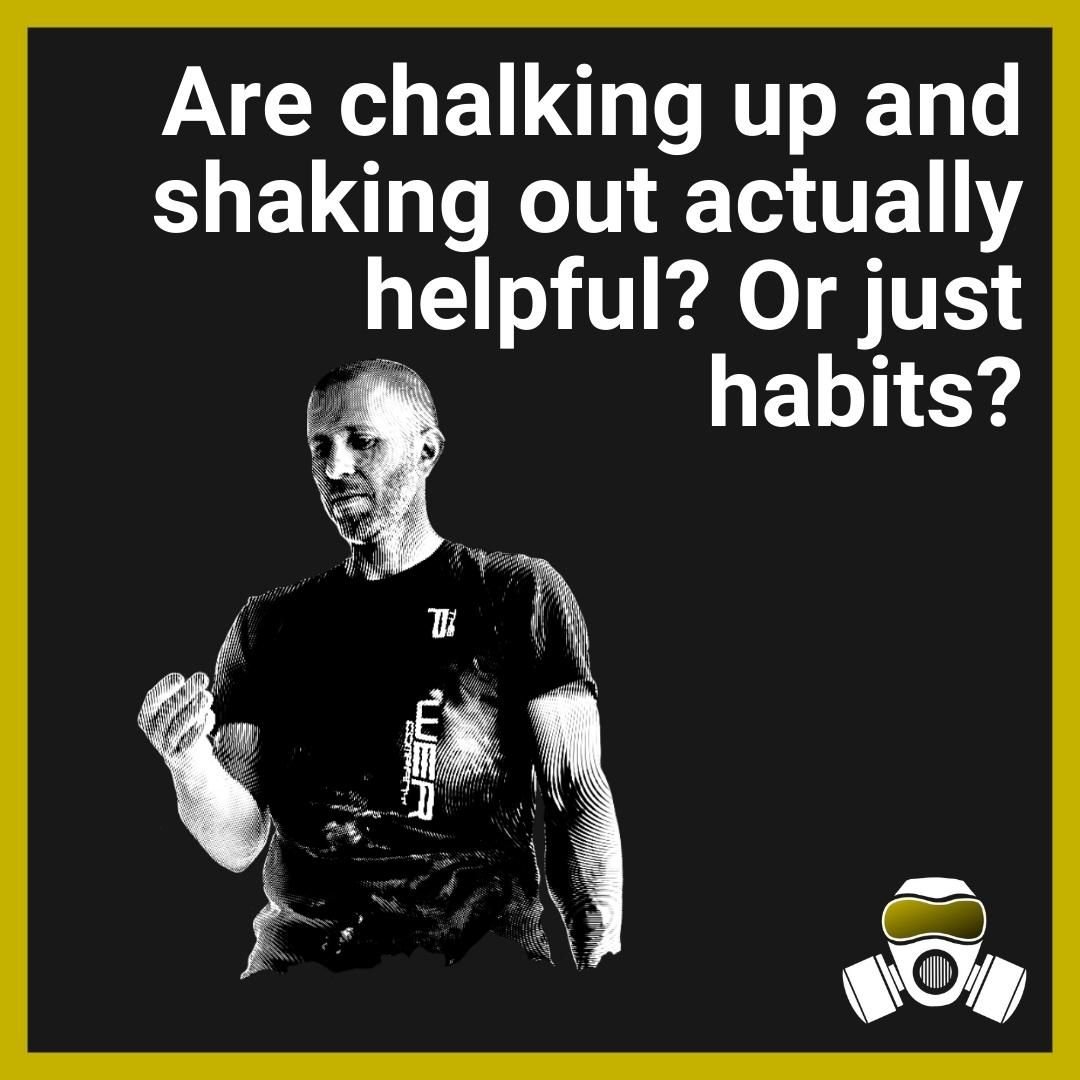
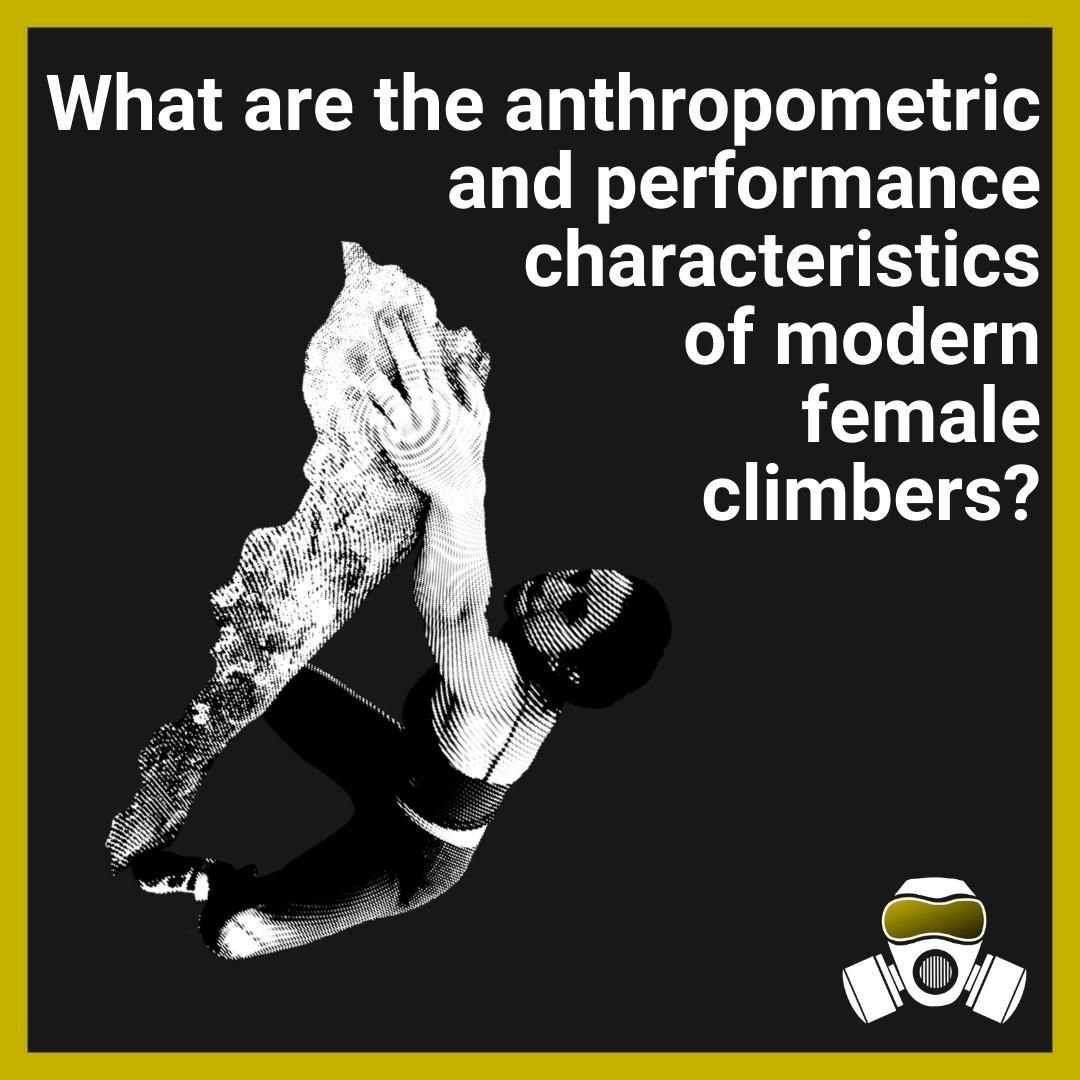
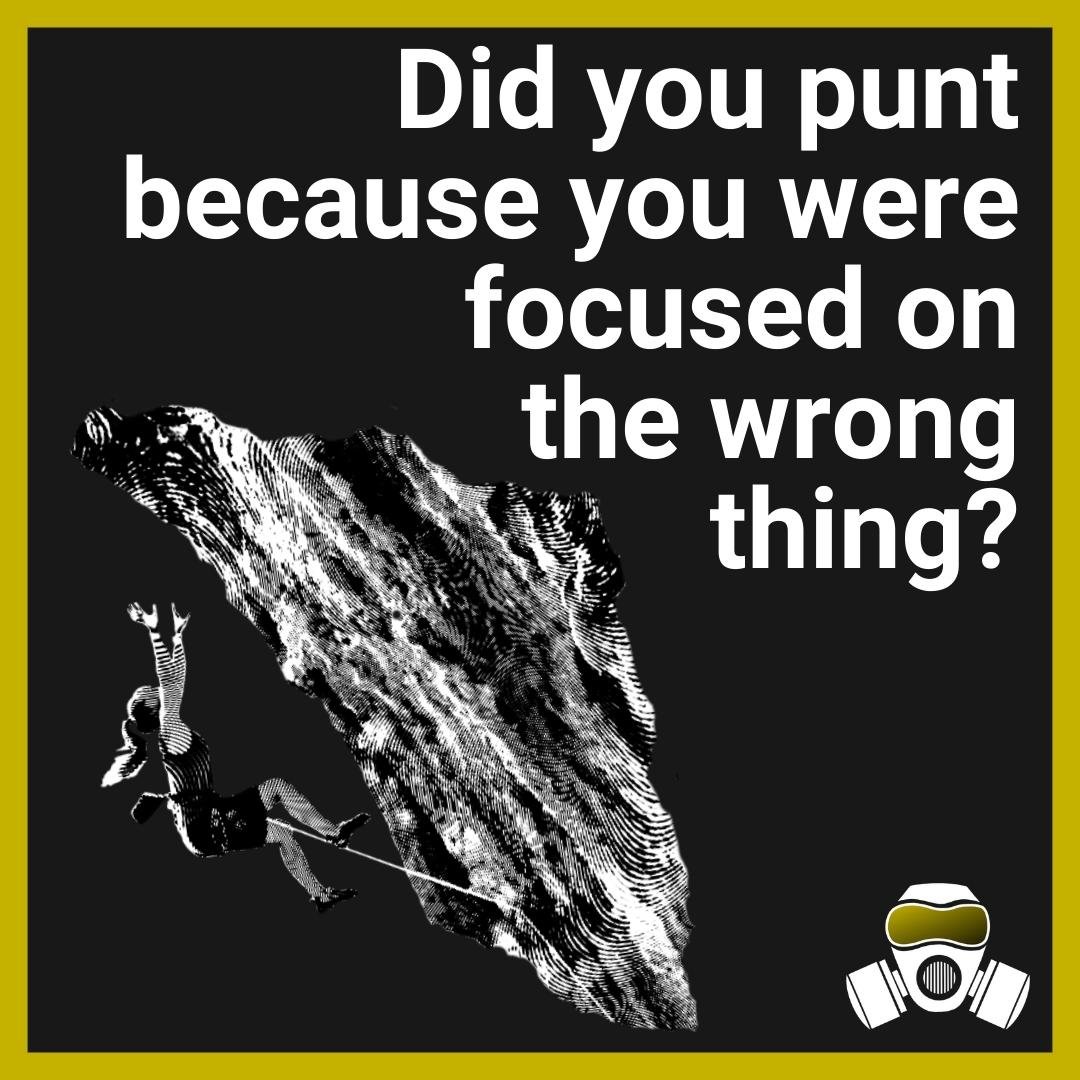

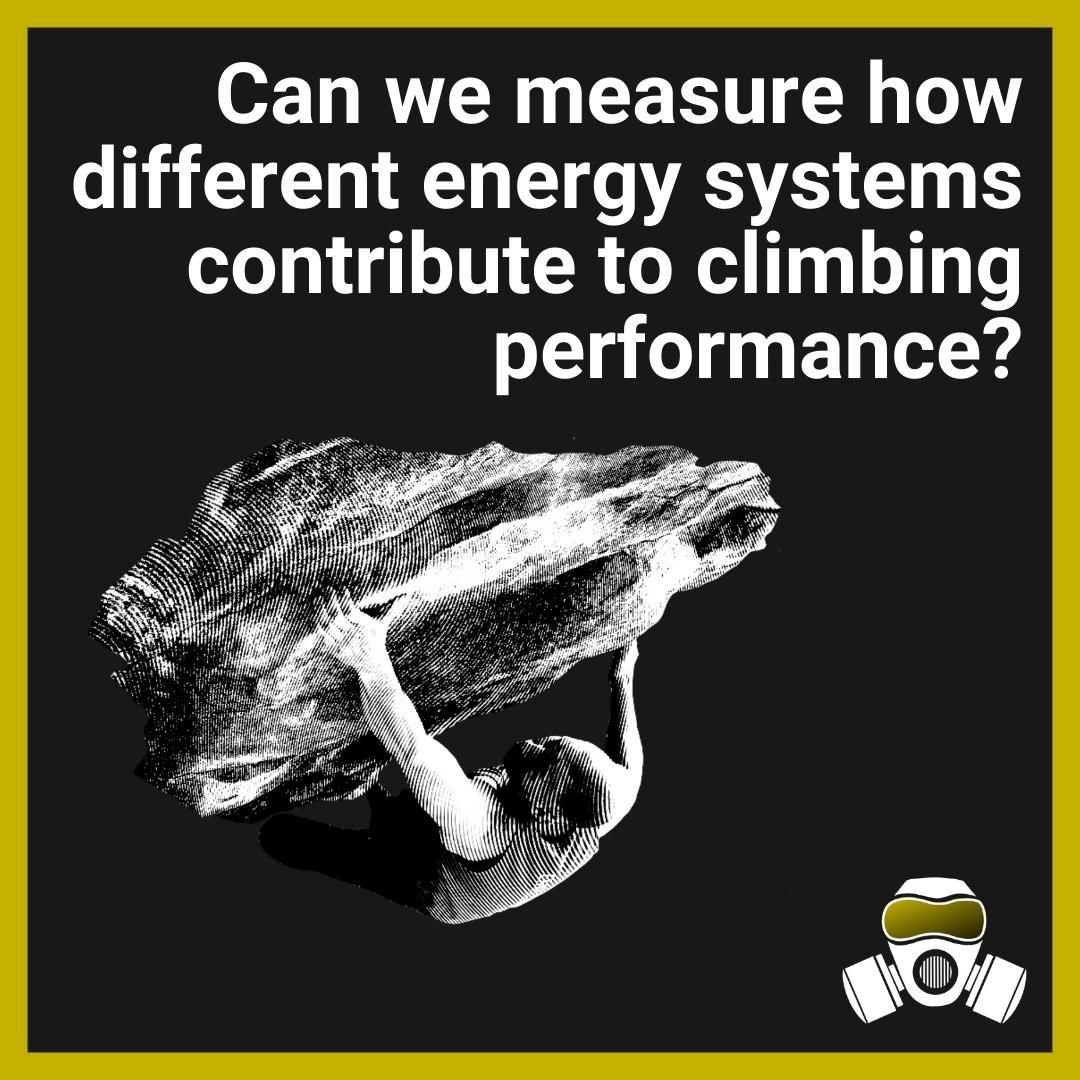
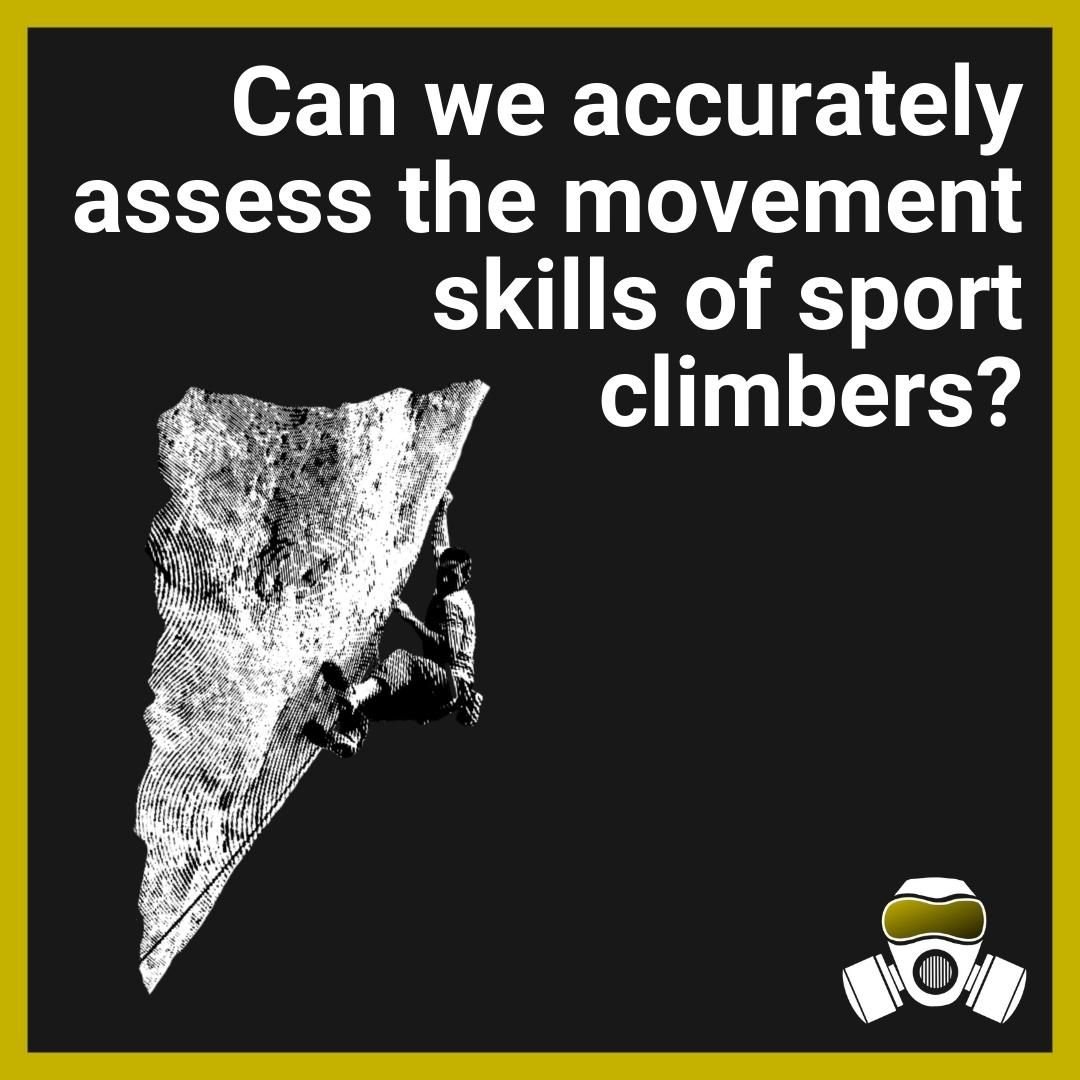
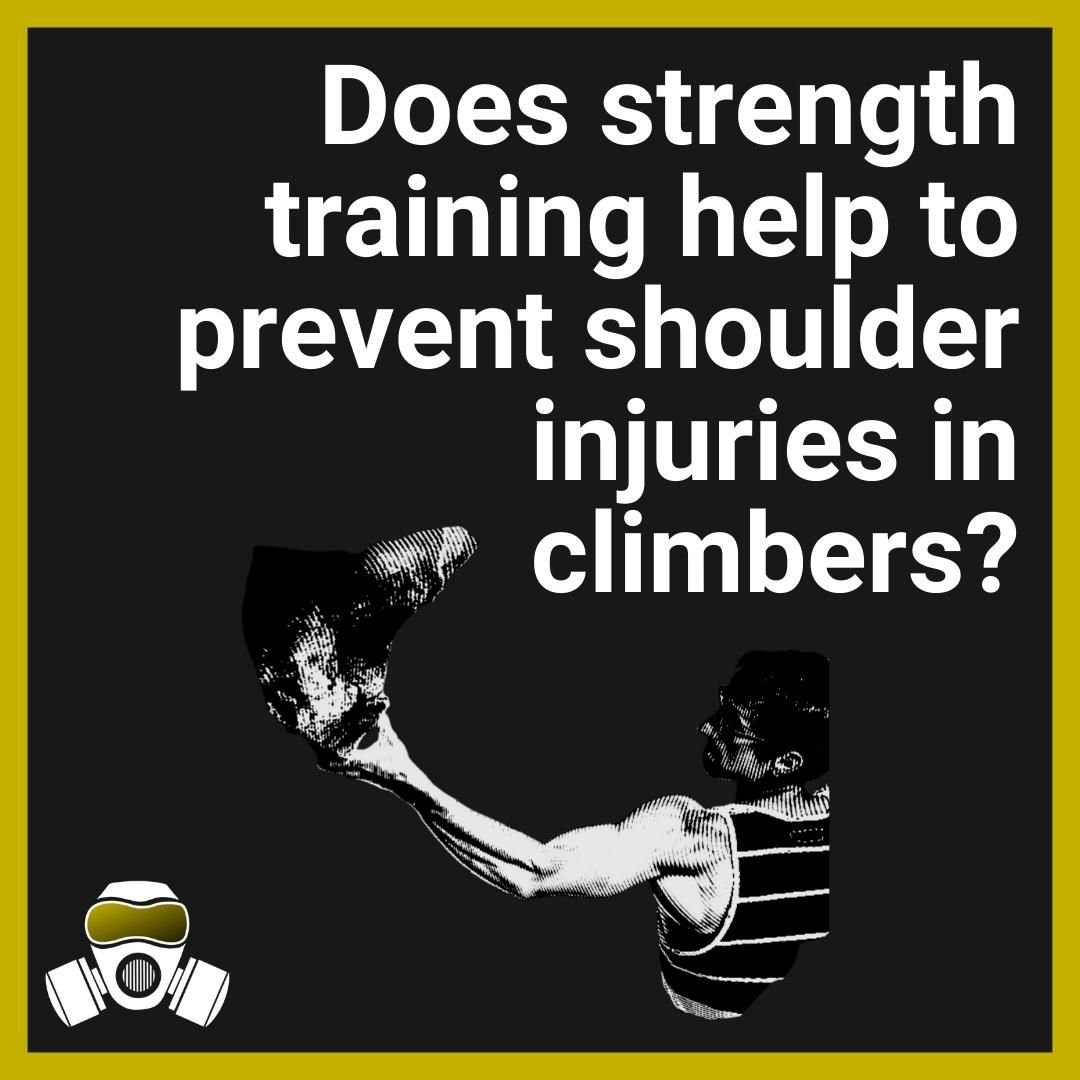









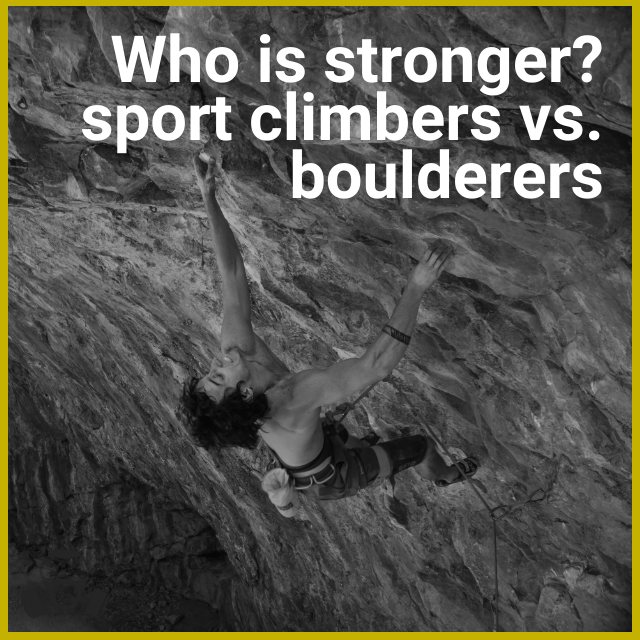

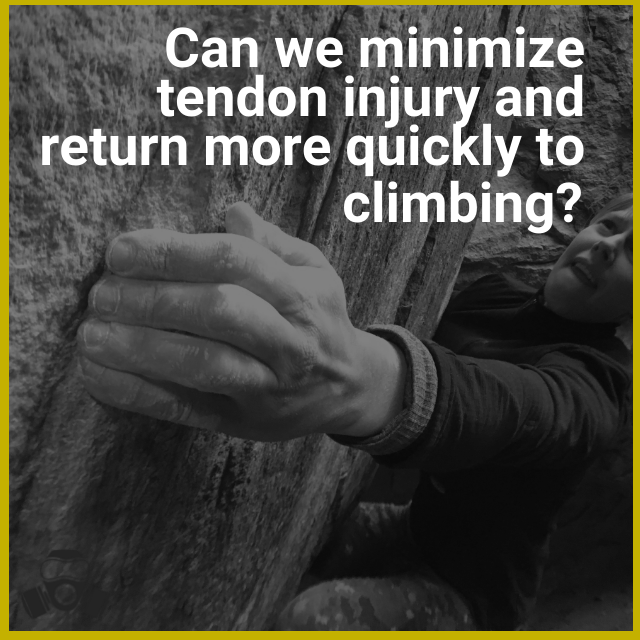
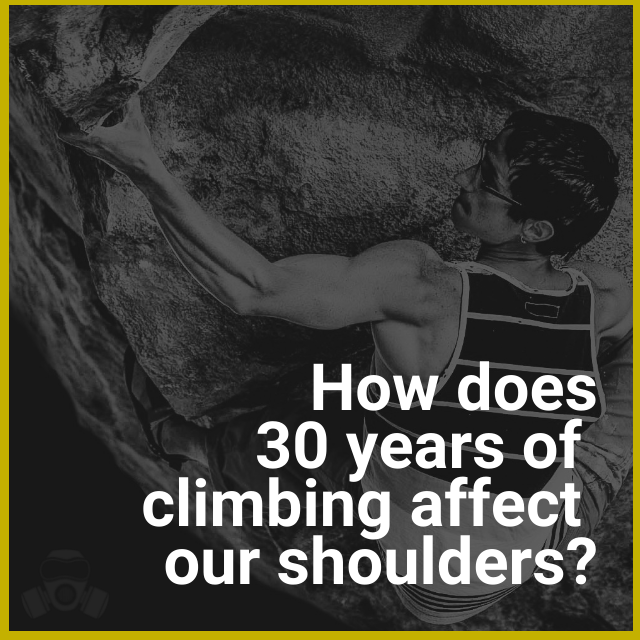





Kris and Paul dig into a paper that presents and then tests a method for measuring movement skills in sport climbing.